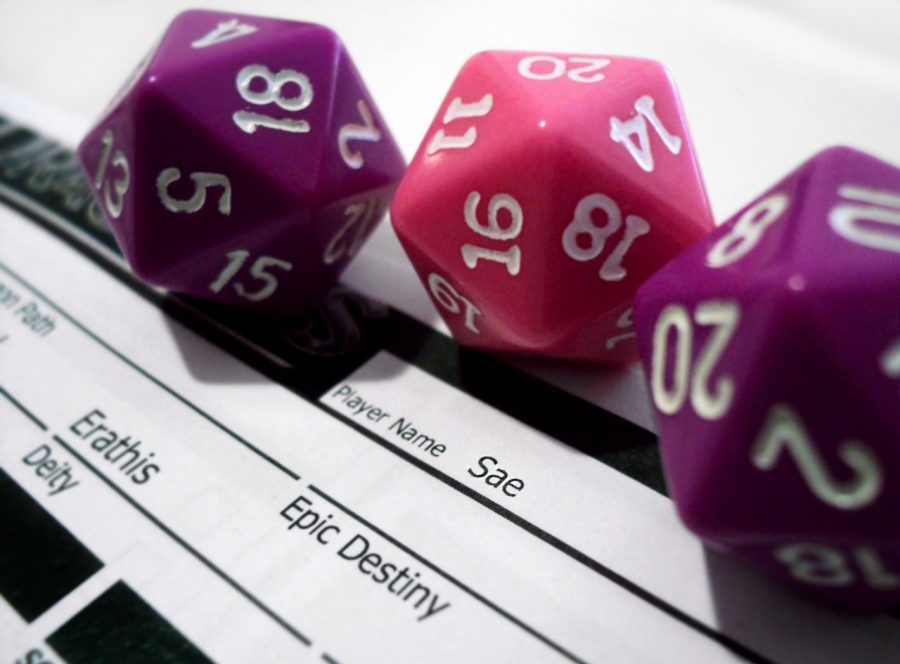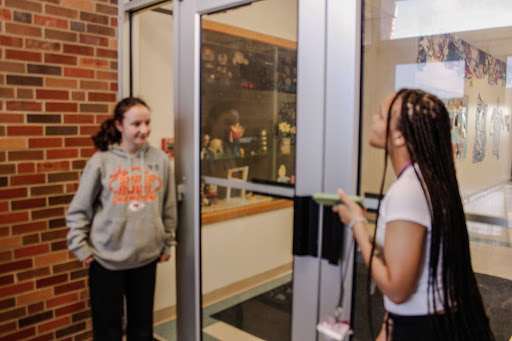Tips Beyond the Tabletop
Most people have heard of the wildly successful tabletop roleplaying game Dungeons & Dragons. And, if you’re a super nerd like me, you may have heard of some more obscure ones like Pathfinder as well. Lots of students here at Hickman play tabletop roleplaying games with their friends, either here at school or elsewhere. Even with all the rules and guidelines in the Player’s Handbook, it doesn’t take long for new players to get invested in the roleplaying group and figure out what they’re doing. The latest edition of Dungeons & Dragons, the 5th edition, is well known for being novice friendly and easy to play. Here, I’m going to go over some tips for anyone playing a tabletop roleplaying game that the Player’s Handbook doesn’t give you:
- The most important skill in the game is usually Perception.
Now you can argue this with me, but the most rolled for skill in every D&D game is Perception. If your Dungeon Master wants you to notice something relevant to the plot, they’re going to have you roll ion.perception. Now, not all backgrounds and classes have perception as an available skill to take your proficiency in, but that’s okay. Most likely, someone in the group will have a character with good perception. However, if no one has perception then it might be harder for the DM to drop hints and give story clues to the players.
- There is no right or wrong way to roleplay.
If you have trouble speaking up in a gaming group in fear that you might say the “wrong” thing, then listen up. There’s no wrong way to roleplay. As long as you act out your character, you’re doing a good job! The worst way to roleplay is to simply not do it at all. But, with that being said, make sure you are being polite and courteous to others outside of the game. While people might not mind your snarky half-elf wizard, they will mind you behaving that way outside of the game as well.
- Pay attention to the game, even when it’s not your turn.
This is very important, for many reasons. Instead of building your dice towers or doodling on your character sheet, pay attention to the interactions that other players are having. This will save everyone from a headache when it’s your turn and you don’t know what’s going on. Plus, while you listen to what’s going on, you can plan out your actions. This will make the game run smoother and reduce confusion at the gaming table.
- Be a good teammate.
Roleplaying is a lot like a cooperative sport: Everyone depends on each other to carry their weight. While your character might not get along with everyone, make sure that they’re still positively contributing to the party and overall gaming experience. After all, it would be hard to justify in-character for the other players to keep your character around is you play somebody that not only dislikes everyone, but does nothing helpful.
- Stay in contact
This is the last tip, but it’s extremely important if you want your gaming group to last a while. Stay in touch with each other! There have been several occasions where players won’t say anything until the last minute that they won’t be available for the latest gaming session. This is really difficult to deal with if you’re a Game Master trying to plan the adventure. They will have to account for your absence and either play your character as an NPC or even halt the game until next session if they weren’t prepared. Gaming will be more consistent and fun if everyone’s in the know about what’s going on. If you can’t attend a session, let your group know ASAP! That way the Game Master can plan in advance.
Articles Used:
“How to Be the Best DnD Player Ever” https://geekandsundry.com/how-to-be-the-best-dd-player-ever/
“How to Play Dungeons and Dragons”






